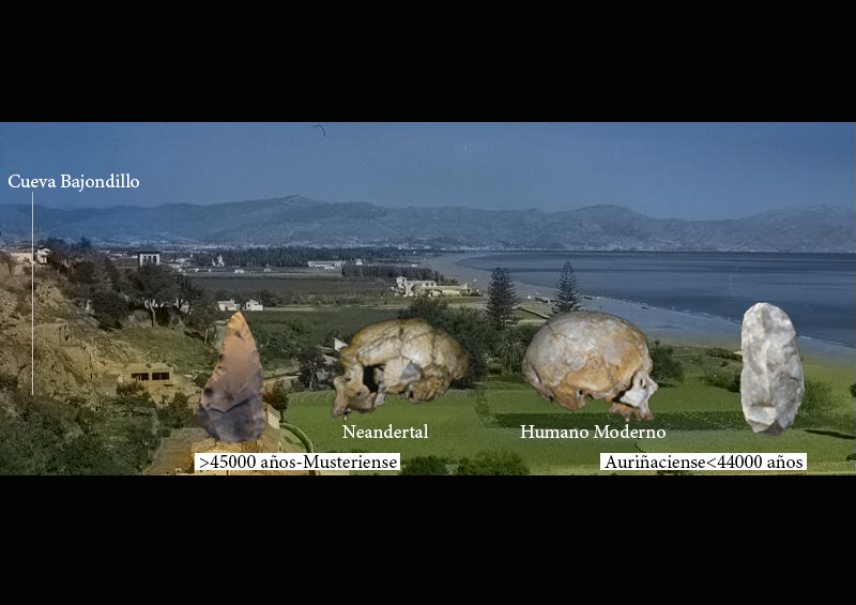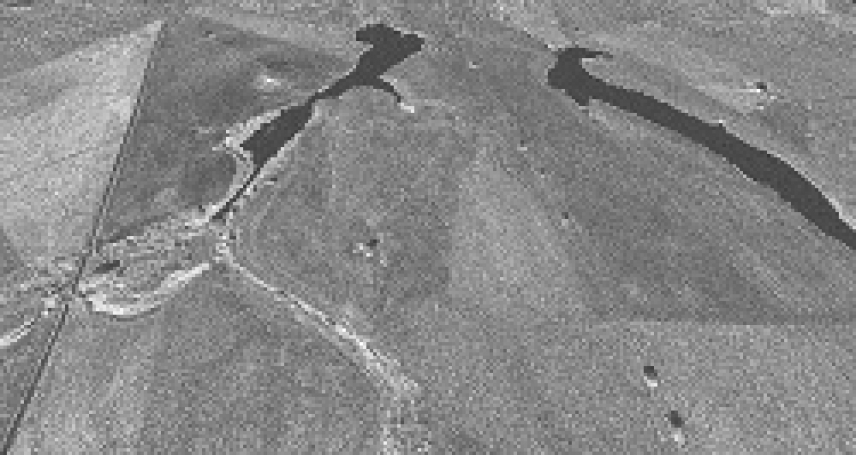Modern humans replaced Neanderthals in southern Spain 44,000 years ago
Escrito por UCC+iThe University of Cordoba, in collaboration with the University of Granada, participated in an international study published today in the journal Nature Ecology and Evolution, proving that Neanderthals were replaced by modern humans in southern Iberia 5,000 years before than previously thought
A study carried out in Bajondillo Cave (in the town of Torremolinos, in the province of Malaga) by an international team made up of researchers from Spain, Japan and the U.K. revealed that modern humans replaced Neanderthals 44,000 years ago. This study, published today in the journal Nature Ecology and Evolution and in which University of Cordoba and University of Granada scientists participated, demonstrates that replacing Neanderthals for modern humans in southern Iberia is an early, not late, occurrence, in the context of Western Europe. That is to say it happened 5,000 years before previously thought up until now.
The University of Cordoba HUM-882 Archaeology research group has used an Italian radar network to analyze the territory of the ancient Roman city near the Upper Guadiato River
They were designed to carry out military espionage and ended up becoming one of the greatest allies of cultural heritage. They were created by the Italian government and ended up working for a Spanish university. Although, in their new mission, in an almost poetic way, they maintain a certain link to their Italian origin. In the end, the network of satellites dubbed COSMO-SkyMed (COnstellation of Small Satellites for Mediterranean basin Observation) has analyzed 49 km2 within the territory containing an ancient Roman city: Mellaria, located within the township of Fuente Obejuna, in the province of Cordoba, whose habitants are still called melarienses [Mellarians] today.
A new model to prevent crime in businesses combines big data and socioeconomic theory
Escrito por UCC+iThe University of Cordoba has designed the basis of a model to prevent criminal behavior at businesses if, in accordance with the possibility provided for in the Penal Code, they wish to not be held legally responsible for perpetrating certain crimes or illegal activity committed by their executives or employees.
When the National High Court indicted Neymar and Barcelona Football Club for signing the player or when the tampering of Volkswagen engines was discovered there was already a regulation in Spanish law that promoted compliance programs, a crime prevention model. So it was clearly set in the Penal Code reform under Organic Law 1/2015; if companies do not have an efficient complicance program, it is likely that they will be liable for certain crimes committed by one of their employees. The implementation and application in these models, called compliances, assumes that the business at least attempts to prevent its employees from committing crimes related to business activity, such as fraud, corruption, environmental crimes, tax evasion and so on, as happened in the Neymar case and seems to have happened in the Volkswagen case.
UCO coordinates a new report on the Roman roots of European civilisation
Escrito por UCC+i
A study published in the journal Andalucía en la Historia hails the Roman Empire as history’s first globalised society
What aspects of Roman civilisation still survive today? We might equally ask ‘What aspects no longer survive?, according to the findings of research by Enrique Melchor Gil, Professor of Ancient History at the University of Córdoba, focusing on Rome’s legacy to present-day civilisation.
The research results, published recently in the journal Andalucía en la Historia, show that current town planning systems, municipal life, law, art and literature are all derived from, or based on, Roman models. According to Prof. Melchor Gil, “Surviving features of Roman society are to be found equally in Andalusia, Europe and the United States”; examples include the layout of today’s cities, which follows Roman patterns, and the way we pay tribute to great men. The Roman Empire also established Europe’s first monetary union, as a means of “pursuing one of the goals of the current European Union, the creation of a single economic space”.





